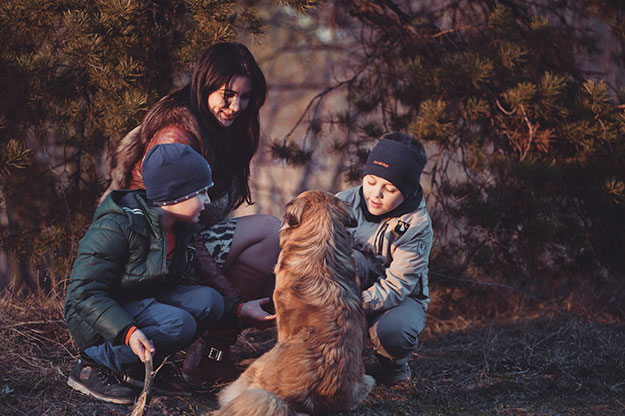For servicemembers and civilians alike, pet ownership is a privilege with many benefits including stress relief, improved health, and emotional connection. However, pets are not always accounted for in the development of emergency and evacuation plans. Joint Base Lewis-McChord's (JBLM) location between an active volcano and the Pacific coastline means that a natural disaster could happen at any time, which may require long-term evacuation. JBLM community members must be vigilant in their disaster preparedness plans.
It is important to remember that disasters affecting pets may just require a brief absence from home. Several recent local emergencies, including the 2017 train derailment in DuPont, created situations where people were unable to make it home to attend to their pets in a timely manner. A personal emergency, such as a car accident that may require a hospital stay, could also prevent people from making it home at a reasonable time to care for their pets. Since disasters and emergencies affect our pets the same way they affect us, it is very important to have a preparedness plan in place to keep your pets and family safe.
 When making a preparedness plan for your pets, it is important to research and arrange safe havens for them before a disaster hits, ensuring that you never have to leave your pets behind in an evacuation scenario. Not all hotels and emergency shelters accept pets, so it is essential to find places that will care for your pets in times of emergency. These locations may include animal shelters, boarding facilities, pet-friendly hotels, or a relative or friend that lives outside your immediate area.
When making a preparedness plan for your pets, it is important to research and arrange safe havens for them before a disaster hits, ensuring that you never have to leave your pets behind in an evacuation scenario. Not all hotels and emergency shelters accept pets, so it is essential to find places that will care for your pets in times of emergency. These locations may include animal shelters, boarding facilities, pet-friendly hotels, or a relative or friend that lives outside your immediate area.
Designating a caregiver that lives in your area is also an important part of the plan, as personal or local emergencies can strike without warning, and since most pets stay at home while their owners are at work. The designated caregiver should be a trusted individual who can bring your pet to a designated emergency pet shelter or someone who can care for your pet if you are unable to get home.
Maintaining correct and up-to-date identification for your pets is another important aspect of a preparedness plan. During a disaster, it is possible that your pet may get lost or separated from you. Making sure your pet always wears a collar with identification tags and has an active microchip will help reunite you should you get separated during a disaster. Servicemembers move frequently, so it is essential for you to update your contact information with each move.
The last component to preparing your pet for a disaster is assembling a pet disaster preparedness kit. Preparing this kit now will ensure that pet owners are ready for any evacuation or shelter in place situation. Don't wait until it's too late. This kit should be kept in an accessible place and stored in an easy-to-carry container. Your pet's disaster preparedness kit should include the following:
Items for transportation and identification for each pet
- Pet carrier (ideally hard-sided and labeled with contact information, animal description and recent photo)
- Leash
- Collar/harness with up-to-date ID tags
- Active microchip (updated contact information with your microchip company)
- List of pet-friendly hotels
Records kept in a waterproof container
- Medication records with drug name, dose, frequency, veterinary and pharmacy contact information
- Vaccine records with current rabies certificate
- A recent photo of you and your pet
- A close-up recent photo of your pet including any unique markings
- Information on diet, feeding schedules, medical conditions, behavior issues and prescriptions
- Proof of ownership, owner contact and emergency contact information
Food, water and medication items (to be rotated as often as needed to avoid exceeding expiration dates)
- 7-14 day supply of food, bottled water and medication
- Feeding and water bowls
Items for sanitation
- Disposable small plastic waste bags
- Litter, litter box and litter scoop for cats
- Trash bags and paper towels
- Liquid dish soap and all-purpose disinfectant wipes
Miscellaneous items (if easily transported)
- Pet bed
- Toys
- Blanket
A pet first aid kit and instruction guide (American Veterinary Medication Association has a pet first aid brochure that can be found online at avma.org/firstaid).
The JBLM Veterinary Center (VETCEN) will be hosting a Pet Owner Disaster Preparedness Fair at the JBLM VETCEN, Saturday, April 27, from 10 a.m. to 2 p.m. Please call the JBLM VETCEN at 253.982.3954 or follow the JBLM VETCEN Facebook page for more information.





Read Comments